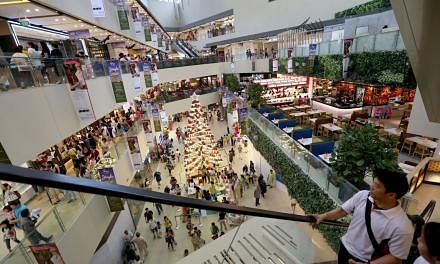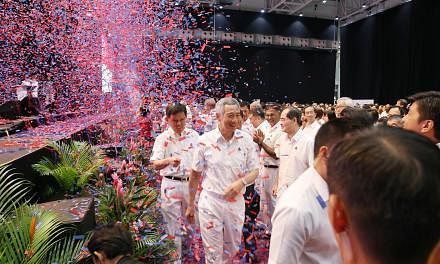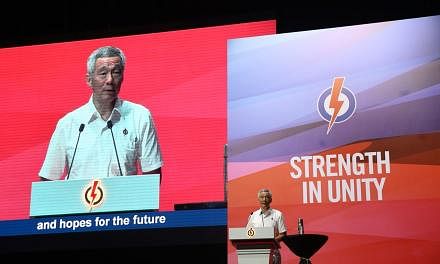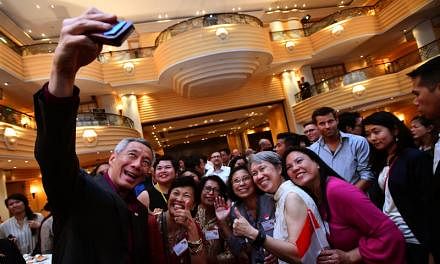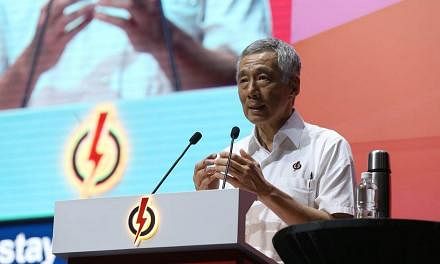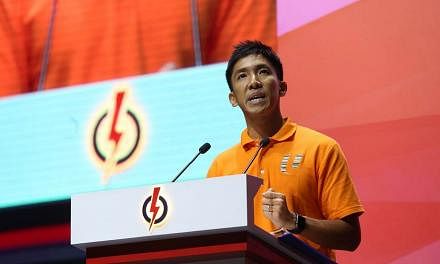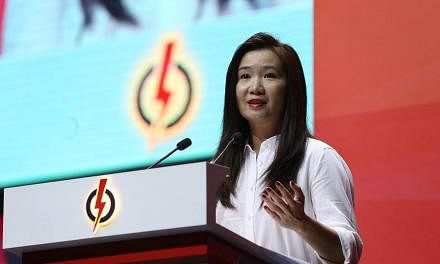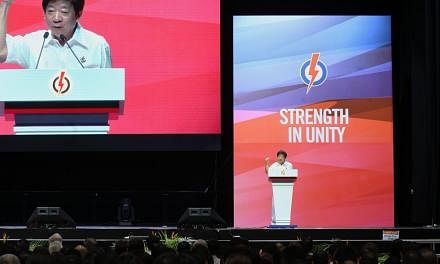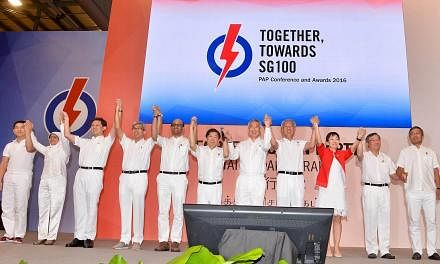Trust was a big theme at the People's Action Party (PAP) convention yesterday.
Prime Minister Lee Hsien Loong, who is the party's secretary-general, devoted major segments of both his English and Mandarin speeches to the subject, and concluded with a call to PAP members: "We have a deep reservoir of trust with the people. We must continue to deepen this trust, and never break it."
Why did he choose to focus on trust this year? There are two hints in his speech.
The first was his reference to the general election, which he said will happen in two to three years. "This is not so fast, but it is also not a long time away. The time to work hard is now," he said in Mandarin.
At the 2015 election, the PAP surprised even itself by improving its vote share by nearly 10 points, to 69.9 per cent. It reclaimed one opposition seat - Punggol East - and nearly unseated the opposition incumbents in Aljunied GRC, coming within 3,000 votes of winning there.
After such a stirring victory, it is human nature for the party's rank and file to feel quietly confident about the PAP's prospects.
Mr Lee's strong reminder that trust can be broken unless everyone continues to work hard may be his way of helping them gear up for the election, which must be held by 2021.
The second hint was his point that taxes may have to be increased in the near future.
Spending needs are growing due to, among other things, infrastructure investments and an ageing population requiring more healthcare services, he noted. Tax increases are thus not a matter of "whether" but "when", he said, using a phrase of inevitability that some would associate with counter-terrorism posters that read "not if, but when".
This is not the first time Mr Lee and his ministers have warned about future tax increases. But what is notable about yesterday's mention is that it appears in the section of his speech covering the Government's plans for the second half of its term.
Given that he also cited the goods and services tax (GST) as one of the difficult policies the PAP had implemented in the past, Mr Lee is giving everyone a heads-up that GST or some other tax may go up before the next polls.
Trust, then, becomes important, because a tough, unpopular policy - like tax increases - can be done with least damage to the Government only if the people trust the Government.
As Mr Lee said: "We must be upfront with Singaporeans, explain to them why we need to do it, get their support for what we need to do. And even if people may not like a specific policy, we must convince them that we are doing it with good intentions, and for good reasons."
His emphasis on trust in the PAP's "good intentions" indicates a deep appreciation of how trust works. Voters must believe not just that the PAP is competent enough to deliver on what it says.
They must also believe that the PAP wants to deliver, which goes one level deeper, and that the PAP is ultimately doing all this for what it believes to be the good of the people, which goes yet another level deeper. It is not doing it, say, for some cynical reason.
Further, Mr Lee spoke about another dimension of trust: A trust in policies at the national level as well as at the individual level.
In his Mandarin speech, he said voters have to not just see the PAP implementing the right macro policies, but also see it resolving the "unavoidable problems" that individuals face as a downstream consequence of those policies.
This is why the 2,000 PAP members PM Lee rallied yesterday play such a critical role. Through them, voters come to know the PAP as "a human, personal presence" - people who will "help you through your difficulties and improve your lives" - not as a "remote and impersonal government", he said.
But there was a form of trust not covered yesterday, that some will want to see the PAP espouse more of. While much was said yesterday about the trust people have in the PAP Government - which, of course, needs to be deliberately nurtured - more perhaps should be said about the Government's willingness to trust the people.
This also requires time and effort to build up, and can bring many benefits to the country's long-term well-being.
Greater trust, for instance, can manifest itself in a more participative form of governance, because that would indicate confidence in ordinary people to have good ideas, and to want to contribute them in a sincere way towards the shaping of policies for the better.
When the people trust the Government and vice versa, a sturdier foundation is laid for Singapore to move with confidence into a future of many uncertainties.


